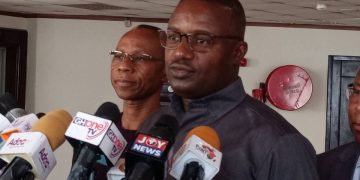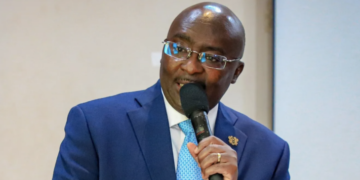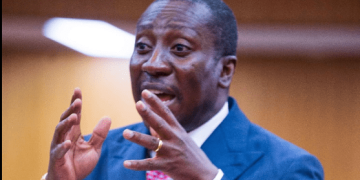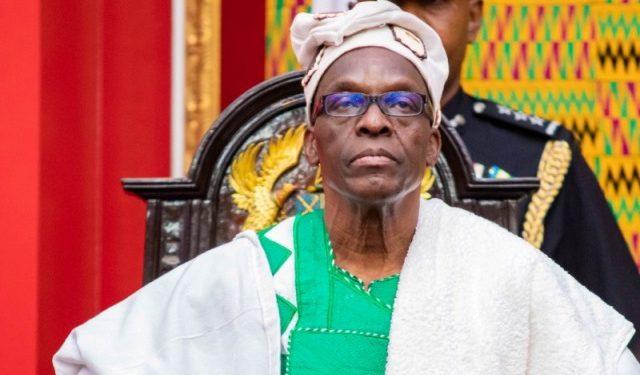Speaker of Parliament, Rt. Hon. Alban Sumana Kingsford Bagbin has dispelled fears of a constitutional crisis, stressing that the current conflicts between Parliament and the Judiciary are part of a functioning democratic system.
Citing his oath to defend the Constitution, the Speaker emphasized the resilience of Parliament despite recent courtroom conflicts over legislative proceedings.
He urged Ghanaians not to be misled by misinformation stressing, “There is no constitutional crisis and the Parliament of Ghana is alive and working.”
Addressing the media on Wednesday, November 6 on on the consequences of continuous litigation on proceedings of Parliament in court, Mr. Alban Bagbin provided context for the tension between Parliament and the Judiciary, which has intensified after a ruling that aimed to limit the Speaker’s pronouncements on issues under judicial consideration.
The controversy, he said, originated when MP for Effutu Hon. Alexander Afenyo-Markin challenged his findings in response to a statement by Hon. Dr. Cassiel Ato Forson on an issue of urgent public importance.
Following this, Afenyo-Markin pursued legal action to prevent the Speaker from making further pronouncements on the matter until the Supreme Court issued a final ruling.
Bagbin stressed the issue has profound implications for Ghana’s democratic system of governance and needs both legal and political solutions.
“This may well be a ‘power play between the arms of government,’ with the potential to undermine our democracy,” he stated.
Citing Article 115 and Article 116 of the Constitution, Speaker Alban Bagbin reinforced the sanctity of parliamentary proceedings, which he argued should remain free from judicial interference.
He slammed the Judiciary for overstepping its role and “colluding” with the Executive in a manner that jeopardizes parliamentary authority.
“Parliament weakens itself when its members keep running to our courts to settle political questions,” Bagbin said and cautioned lawmakers against using the Judiciary to resolve issues that should be settled within Parliament.
He expressed disappointment at some members of Parliament who, in his view, undermine the institution by seeking judicial intervention in legislative matters, saying, “This might be one of the reasons Parliament and MPs are not respected and treated with disdain.”
Bagbin reiterated the significance of legislative autonomy for Ghana’s democracy and appealed for patience, tolerance, discipline, collaboration, and love for one another.
According to him, his dream is a patriotic one, the existence of a firm, effective, efficient, and responsive Parliament whose members place national and constituency interests ahead of narrow, partisan, or personal interests.
He underscored that Parliament, as the embodiment of the people’s will, should be free to act without external pressures from the Executive or Judiciary and quoting former U.S. President Barack Obama famous: “Africa needs strong institutions, not strong men.”
Asserting that Parliament would resume sitting as scheduled on November 7, Bagbin disclosed that he has instructed the Clerk to transmit the LGBTQ+ Bill to the President for assent, a move that emphasizes Parliament’s authority in passing legislation.
“The wheels of Parliament will continue to turn,” he assured Ghanaians and underscored his commitment to collaboration with the government and affirming, “Ghana first.”
Speaker Bagbin goaded the Judiciary to apply the same urgency to all matters before it. He noted that while the courts were quick to grant an ex parte motion limiting parliamentary activities, other cases, such as the President’s refusal to assent to the Human Rights and Family Values Bill, have lingered unresolved.
He appealed to the public to keep Ghana’s leaders in their prayers, reaffirming his commitment to a collaborative government but firmly maintaining Parliament’s independence as crucial to a healthy democracy.



















































































